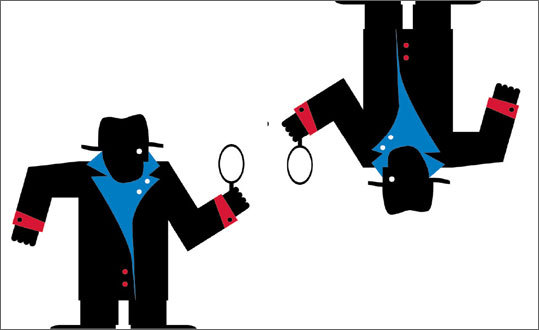Intelligent Design
Can spies do a better job predicting the future and understanding the present? A bunch of social science academics think so, and they’ve outlined a host of ways to fine-tune the American intelligence community’s notoriously jagged record of spotting chthonic trends in geopolitics. My latest column in The Boston Globe describes the movement by behavioralists to bring a little rigor to spying by, well, applying the scientific method.
The American intelligence system is the world’s most sophisticated surveillance network, costing $80 billion a year with 200,000 operatives covering the mapped world, but its work can read like a grand comedy of errors. Notwithstanding all the things America’s spies get right, it’s hard to ignore the unending parade of major, world-changing events that they missed. There was the failure to connect the warnings before 9/11; the false guarantee that Saddam Hussein had weapons of mass destruction; the assured stability of Arab autocrats up until this January.
In the last decade, the network has only continued to grow, with a key role in informing decisions of war and peace, and the near impossible task of preventing another terrorist attack on American soil. With so much at stake, you would assume the intelligence community rigorously tests its methods, constantly honing and adjusting how it goes about the inherently imprecise task of predicting the future in a secretive, constantly shifting world.
You’d be wrong.
In a field still deeply shaped by arcane traditions and turf wars, when it comes to assessing what actually works — and which tidbits of information make it into the president’s daily brief — politics and power struggles among the 17 different American intelligence agencies are just as likely as security concerns to rule the day.
What if the intelligence community started to apply the emerging tools of social science to its work? What if it began testing and refining its predictions to determine which of its techniques yield useful information, and which should be discarded? Director of National Intelligence James R. Clapper, a retired Air Force general, has begun to invite this kind of thinking from the heart of the leviathan. He has asked outside experts to assess the intelligence community’s methods; at the same time, the government has begun directing some of its prodigious intelligence budget to academic research to explore pie-in-the-sky approaches to forecasting. All this effort is intended to transform America’s massive data-collection effort into much more accurate analysis and predictions.
“We still don’t really know what works and what doesn’t work,” said Baruch Fischhoff, a behavioral scientist at Carnegie Mellon University. “We say, put it to the test. The stakes are so high, how can you afford not to structure yourself for learning?”


